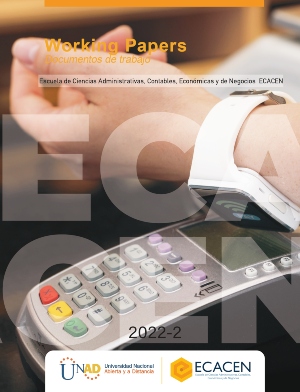Level of financial knowledge of owners of small fundios engaged in coffee growing in the municipality of La Plata, Huila
According to the National Federation of Coffee Growers of Colombia, coffee is the most important productive line in the department of Huila due to its participation in the total national production (18.07%), generating income and productive employment. The greatest expectations are found in specialty coffee and this is what is being targeted in recent years; Surprisingly, there has been growth in this field, since the coffee grower from Huila is very familiar with the fact that he is on the right path to guarantee quality and sustainability. At the close of December 31, 2015, according to the Departmental Committee of Huila of the National Federation of Coffee Growers in Colombia, the coffee region of Huila is made up of 101,263 coffee farms where 82,017 coffee growers work. Currently, the department has 154,090 hectares of coffee spread over 35 coffee-producing municipalities that are grouped into 5 sections Acevedo, Pitalito, Garzón, Neiva and La Plata. Coffee represents 7.8% of the GDP of Huila, and is 52% of the Agricultural GDP, 301 thousand people depend on coffee cultivation (68% of the rural population of Huila), it generates 31,000,000 wages from the entire agricultural sector, equivalent to 73%, generating 110,400 direct jobs and 98,000 indirect jobs. 96% of coffee growers are small farm owners where the farm has an average area of 1.5 hectares, which account for 81% of Huila’s production, represents 43.8% of Huila’s traditional exports, with 9.3 % of departmental agricultural production volume, contributes 39.7% of its value, in total coffee production in 2015 was 2,445,752 bags of 60 kg each. Taking into account that La Plata is one of the most influential coffee sections of Huila, occupying the third position in the production of the grain at the departmental level and the importance that this represents, we wanted to focus an analysis on the financial knowledge that coffee growers have at when harvesting, determining if they are really aware of the profits they represent.





